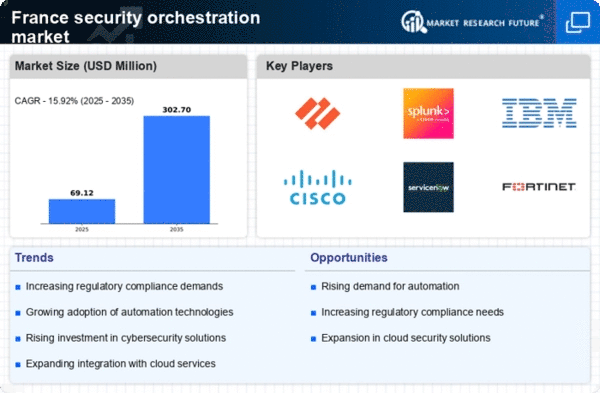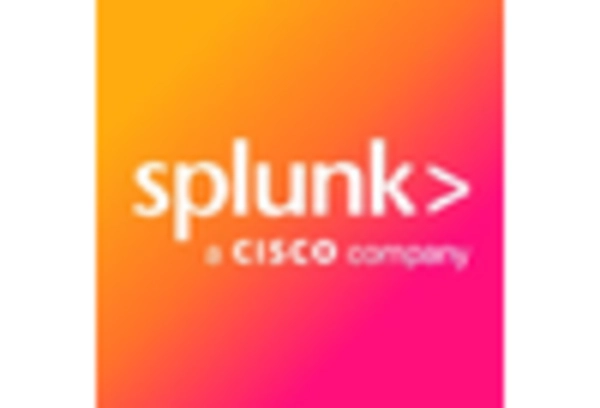Regulatory Compliance Pressures
In France, the security orchestration market is significantly influenced by regulatory compliance pressures. Organizations are required to adhere to stringent data protection regulations, such as the General Data Protection Regulation (GDPR). Non-compliance can result in hefty fines, reaching up to €20 million or 4% of annual global turnover, whichever is higher. This regulatory environment compels businesses to implement comprehensive security measures, including orchestration solutions that facilitate compliance monitoring and reporting. By automating compliance processes, organizations can ensure they meet regulatory requirements while minimizing the risk of data breaches. The need for continuous compliance in a rapidly evolving regulatory landscape is likely to drive the adoption of security orchestration tools in the coming years.
Demand for Operational Efficiency
The pursuit of operational efficiency is a key driver in the security orchestration market in France. Organizations are increasingly recognizing the need to optimize their security operations to reduce costs and improve response times. By integrating security orchestration solutions, companies can automate repetitive tasks, allowing security teams to focus on more strategic initiatives. In 2025, it is projected that organizations could save up to 30% in operational costs by implementing these solutions. This efficiency not only enhances the overall security posture but also enables organizations to respond to incidents more swiftly and effectively. As businesses strive to balance security needs with budget constraints, the demand for orchestration tools that deliver operational efficiencies is expected to rise.
Increasing Cyber Threat Landscape
The security orchestration market in France is growing due to the escalating cyber threat landscape.. With cyberattacks becoming more sophisticated, organizations are compelled to adopt advanced security measures. In 2025, it is estimated that cybercrime could cost the global economy over $10 trillion annually, prompting French enterprises to invest in security orchestration solutions. This market segment enables organizations to automate incident response and streamline security operations, thereby enhancing their resilience against potential breaches. The increasing frequency of ransomware attacks and data breaches has led to a heightened awareness of the need for robust security frameworks, driving demand for orchestration tools that can integrate various security technologies and provide a unified response to threats.
Integration of Diverse Security Tools
The security orchestration market in France is driven by the need for integration of diverse security tools. Organizations often deploy multiple security solutions, which can lead to fragmented security postures and inefficient incident response. Security orchestration platforms enable the seamless integration of various tools, allowing for a more cohesive security strategy. In 2025, it is anticipated that over 60% of organizations in France will adopt orchestration solutions to unify their security operations. This integration not only enhances visibility across the security landscape but also facilitates faster and more coordinated responses to threats. As the complexity of security environments increases, the demand for orchestration solutions that can harmonize disparate tools is likely to grow.
Shift Towards Proactive Security Postures
The shift towards proactive security postures is a notable trend influencing the security orchestration market in France. Organizations are moving away from reactive approaches to security, recognizing the importance of anticipating and mitigating threats before they materialize. This proactive stance is driving the adoption of orchestration solutions that provide real-time threat intelligence and automated response capabilities. In 2025, it is expected that the market for proactive security solutions will expand by over 25%. By leveraging orchestration tools, organizations can enhance their threat detection capabilities and respond to incidents more effectively, thereby reducing the potential impact of security breaches. This shift towards proactive security is likely to shape the future landscape of the security orchestration market.
















